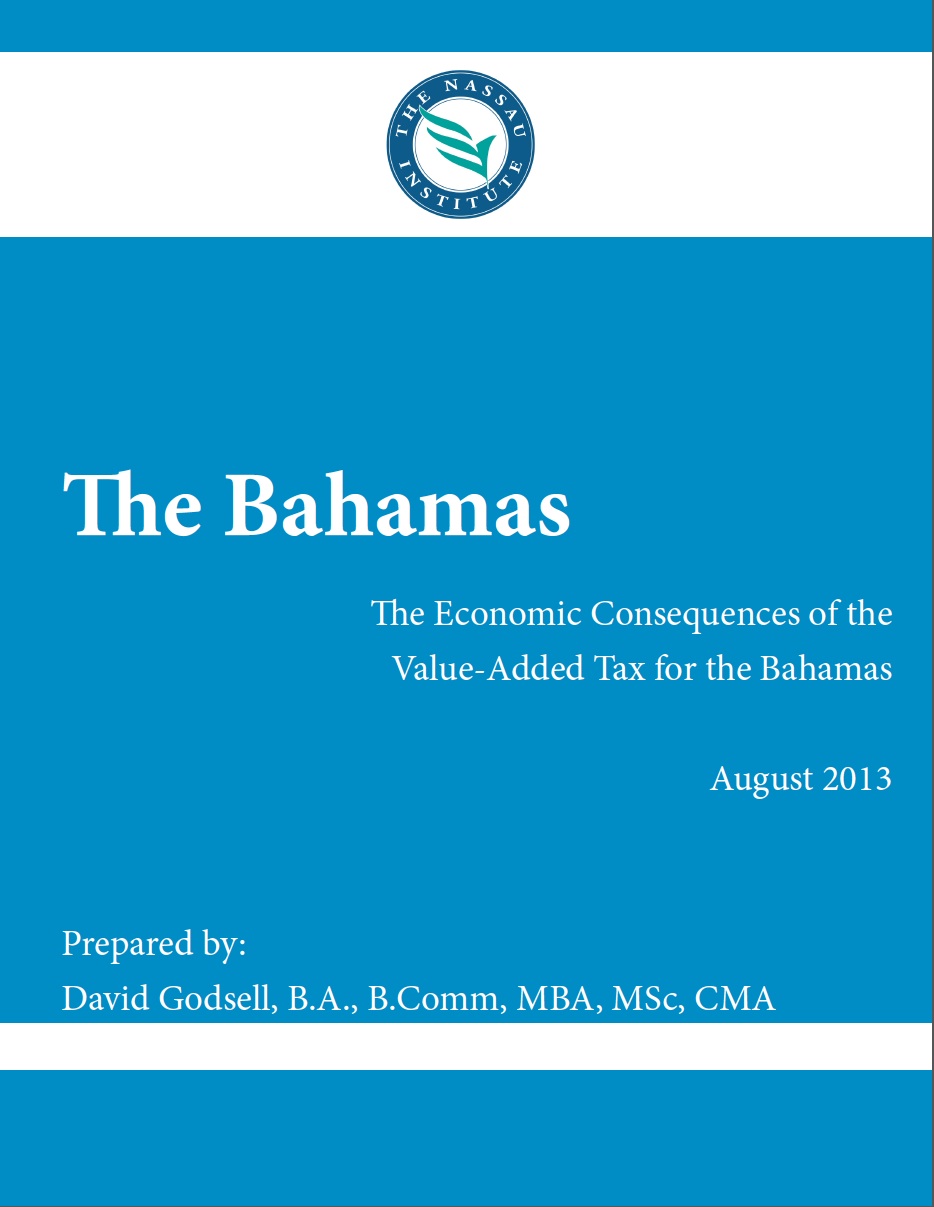 Executive Summary
Executive Summary
As described by the White Paper released by the Bahamian government in February 2013, the Bahamas is poised to adopt value-added taxes (VAT) in July 2014.
In this report we discuss the economic consequences of VAT adoption and elaborate on the welfare loss that can be anticipated for consumers, labourers, employers and the government. Consumers can expect a one-time increase in price levels and a loss of purchasing power.
Labourers can expect a decline in real wages which will in turn lead to a decline in the labour supply. Businesses and employers with VAT-based sales can expect reduced demand for goods and services, which will in turn reduce their demand for labour.
Under extraordinarily conservative estimates biasing towards heightened government revenues, we forecast VAT adoption will lead to a $165 million decline in government revenues.
Simultaneously, we estimate VAT adoption will burden the private sector with $103 million in annually recurring compliance costs and an average of $4,300 in compliance start-up costs for each VAT registrant.
The report concludes by pointing to failed VAT adoptions in countries similar to the Bahamas and by highlighting contemporary efforts to reduce budget deficits through reductions in government spending.
The NASSAU INSTITUTE
Bay and Deveaux Streets
To reserve your copy of the 48 page report
Telephone 324 2035.
E-Mail: joan@nassauinstitute.org
Single Copy $20.00 each
10 or more copies $15.00 each
Cheques payable to The Nassau Institute – P.O. Box N 1688
Download a copy (pdf) here…

